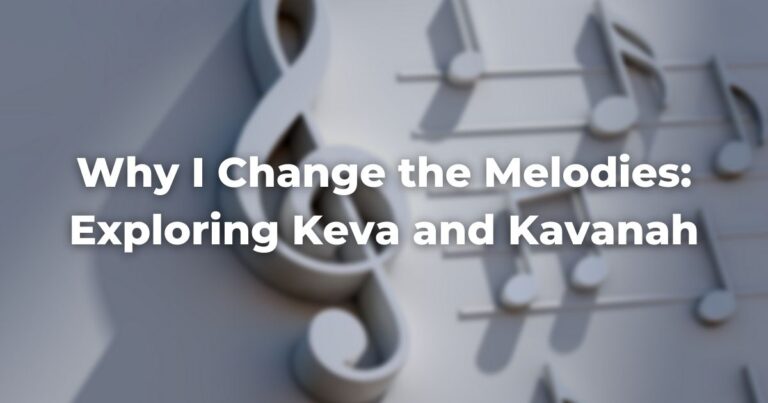Our parashah contains the dramatic high point of the Exodus story, in which God splits the Sea of Reeds so that the Israelites might pass through on dry land, and then closes up the waters again to drown their Egyptian oppressors.
The Israelites, overcome by awe at the miracle that has befallen them, break out in exultant gratitude: “This is my God and I will enshrine Him” (Exodus 15:2).
Yet the Torah tells us that just three days later, when the people find themselves without potable water, they complain to Moshe, demanding to know what they are supposed to drink. This sudden transition from euphoric singing to querulous mumbling is like plummeting from a great height.
Why are the people deprived of water so soon after the climactic moment of the Exodus, and what is God’s response to the people’s complaining meant to teach the Israelites, and all of us?
When the people first find themselves without drinking water after having journeyed three days from the Sea of Reeds, they are encamped at Marah.
Bitter water?
The word Marah means “bitterness,” and indeed, the problem at Marah is not that there is no water, but that the water is too bitter to drink. Bitterness was the hallmark of the Israelites’ experience of Egyptian enslavement—the Egyptians “made life bitter for them with harsh labor” (Exodus 1:14).
The people believed that in leaving Egypt, they were leaving the bitterness behind them. They are dismayed to encounter bitterness even after God’s dramatic and miraculous deliverance. “What shall we drink?” they complain to Moshe.
Remarkably, they do not make any mention of God at this point. The same people who, just three days before, sang out “the Lord is my strength and might, the Lord is become my deliverance” (Exodus 15:2), do not even think to turn to God, or to ask their leader to turn to God on their behalf.
Have they already forgotten God’s power to perform miracles with water? Surely a God who split the sea can provide drinking water!
Spiritual Crises
The midrash relates that even Moshe had a spiritual crisis at Marah.
When the people complained to Moshe, Moshe in turn appealed to God. According to the midrash, Moshe cried out, “Why were these waters created? What benefit do they afford the world? It would be better if they had not been created!” (Exodus Rabbah 43:3).
Moshe, perhaps emotionally overwhelmed both by the dramatic splitting of the sea and by the stress of the people’s neediness, is also incapable of making a straightforward request of God, and instead lashes out in frustration. Soon after the people’s miraculous deliverance, it seems that Moshe, too, has lost faith in God’s power to rally to the people’s aid.
In the Torah, God responds to Moshe’s cry by showing him a piece of wood which he can throw in the water to make it sweet.
The midrash explains that God is trying to teach Moshe a lesson that can serve the people lifelong.
God begins by objecting to Moshe’s request to undo the creation of the waters: “Don’t say that. Are they not the work of my hands? Is there anything in the world that was not created for a purpose? Rather, I will teach you what you should say. Say this: Make the bitter sweet.”
There is no way to get rid of the bitterness; it is a part of the created world. The Israelites will continue to experience bitterness even after having escaped Egyptian bondage.
But they can learn how to make the bitter sweet.
As free people, they will have the power to change their circumstances so that the bitterness does not define the entirety of their experience.
The midrash further notes that the Torah does not say that God “showed” Moshe a piece of wood that he might place in the waters, but rather “instructed” him regarding the piece of wood.
The Torah’s word for “instructed,” vayorehu, comes from the same root as Torah, and various rabbinic sources teach that it was at Marah that the people received the very first of the Torah’s laws. Water is a common metaphor for Torah, so the rabbis teach that the Israelites grew weary at Marah because they had just gone three days without Torah; for this reason, explain the sages, we are commanded to read Torah at least every three days, on Shabbat, Monday, and Thursday (Bava Kama 82a).
The people were thirsty not only for water, but also for Torah to structure and give meaning to their newfound freedom.
After God sweetened the waters at Marah, “God made for them there a fixed rule” (Exodus 15:25). The rabbis explain that this fixed rule consisted of ten laws that God gave the people at Marah, including the laws of Shabbat and of honoring parents (Sanhedrin 56a).
Perhaps the belief that the people’s lives would automatically lose all bitterness when they left Egypt was not the only illusion that the Israelites harbored.
Perhaps they also thought that liberation meant freedom from all constraint—the freedom to do anything they wanted seven days a week, and to flaunt all authority. But after three days, they found themselves in crisis, and so God began to structure their lives according to the rules of the Torah.
The lessons of Marah, then, are manifold.
In addition to the series of laws that God gave to the people, God also showed them how to adjust to life as free people.
As the people learn, freedom does not obliterate bitterness, but it does give us the agency to be able to sweeten some of the bitter moments. Likewise, freedom does not mean liberation from all constraint, but rather the opportunity to infuse our lives with structure and purpose.
These lessons may go hand in hand—by shaping our lives in accordance with the Torah’s values and enriching our lives with its rituals, we may find that our bitter moments become sweeter.
We may find ourselves receptive to miracles not just at life’s rare and climactic moments, but also at the many wilderness encampments along the way.
See more: Parashat Beshalach
Originally posted as part of the Conservative Yeshiva at the Fuchsberg Jerusalem Center’s Torah Sparks. Support Torah learning from the Fuchsberg Jerusalem Center/Conservative Yeshiva for leaders and seekers around the world here
Authors
-

Ilana Kurshan teaches Talmud at the CY. She is the author of If All the Seas Were Ink (St. Martin’s Press, 2017) and Why is This Night Different From All Other Nights (Schocken, 2005). She has a degree in History of Science from Harvard and in English literature from Cambridge, and has worked in literary publishing both in New York and in Jerusalem – as a translator, a foreign rights agent, and as the Books Editor of Lilith Magazine. Since October 2020, Ilana has been a regular contributor to Torah Sparks, FJC’s weekly parashat hashavuah blog.
-



The Fuchsberg Jerusalem Center (FJC) is a home in the heart of Jerusalem where leaders and seekers can find an authentic place in Jewish tradition to call their own. FJC offers opportunities to study, pray and explore within an egalitarian and inclusive setting, creating multiple pathways for finding personal and communal meaning.




